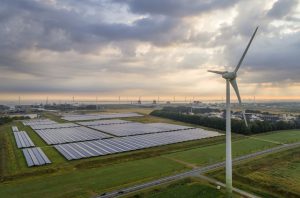The US customs agency has, since October, held $43 million worth of shipments of Indian electronics equipment under a law banning entry of goods made with Uyghur forced labour in China, data shows.
The US Customs and Border Protection did not specify what types of electronic equipment it was holding, but the law they are held under identifies a raw material in solar panels — polysilicon — as a high-priority sector.
The Uyghur Forced Labor Prevention Act (UFLPA), passed in 2022, bans goods made in China’s Xinjiang region, where Chinese authorities are said to have established labour camps for ethnic Uyghur and other Muslim groups. Beijing has denied any abuses.
Also on AF: Most Effective Climate Policies Identified in New Study
The detention of Indian solar panels represents a new focus for the CBP, given the agency has largely focused on Chinese suppliers so far. No electronics shipments from India have been detained under the UFLPA in the past.
Indeed, almost a third of the detained Indian electronics shipments were denied entry, according to CBP. By comparison, just 5.4% of shipments from top US solar component suppliers in Malaysia, Vietnam and Thailand were denied entry over that period.
While the detentions represent a small share of the electronics shipments detained by the CBP in recent years, they are a major setback for Indian manufacturers looking to establish themselves as an alternative to Chinese goods.
The CBP has stopped $3 billion worth of shipments under the UFLPA in the last two years, making US solar project developers wary of navigating tariffs and delays on panels made by mainly Chinese companies.
“If the solar cells for Indian panels are coming from China, then there is likely a good reason why detentions of Indian products may be increasing,” Tim Brightbill, a trade attorney with Wiley Rein LLP, said.
“My sense is that Customs and Border Protection did not realise for a while that many Indian solar panels contained Chinese solar cells, and therefore the UFLPA risks were (and are) high.”
Waaree, Adani products in the net
Imports of solar products from India have soared in recent years, hitting $2.3 billion last year, according to US trade data.
In the second quarter of 2024, India accounted for 11% of US panel imports, more than double its share in the previous quarter, according to S&P Global Market Intelligence.
As recently as 2018, the US was not importing any solar panels from India.
“Indian module manufacturers found an opportunity to import more at a time when the Chinese manufacturers were being held up because of UFLPA,” Richard Mojica, a trade attorney with Miller & Chevalier in Washington, said.
Waaree Technologies and Adani Enterprises are the top Indian solar suppliers to the US market.
A spokesperson for Adani confirmed that some of its shipments had been detained and that all had been released.
“This outcome reaffirms that our products imported into the US fully comply with UFLPA regulations, reinforcing customer confidence in the quality, reliability and legal adherence of our products and manufacturing,” the spokesperson said.
Waaree did not respond to requests for comment.
- Reuters, with additional editing by Vishakha Saxena
Also read:
More Chinese Companies Blacklisted For Uyghur Forced Labour
US Crackdown on China ‘Slave Labour’ Blocks Solar Projects
US Ban on Xinjiang Could Hit Global Solar Panel Industry
CATL, Gotion Under Scrutiny in US Over ‘Use of Forced Labour’
China Carmakers ‘Must Ensure Parts Not Made by Forced Labour’
China Sanctions US Firm Over Xinjiang-Related Investigations
Tesla Criticised Over Showroom in China’s Xinjiang Region
Senior Auditors Wary on Review of VW Plant in China’s Xinjiang
























